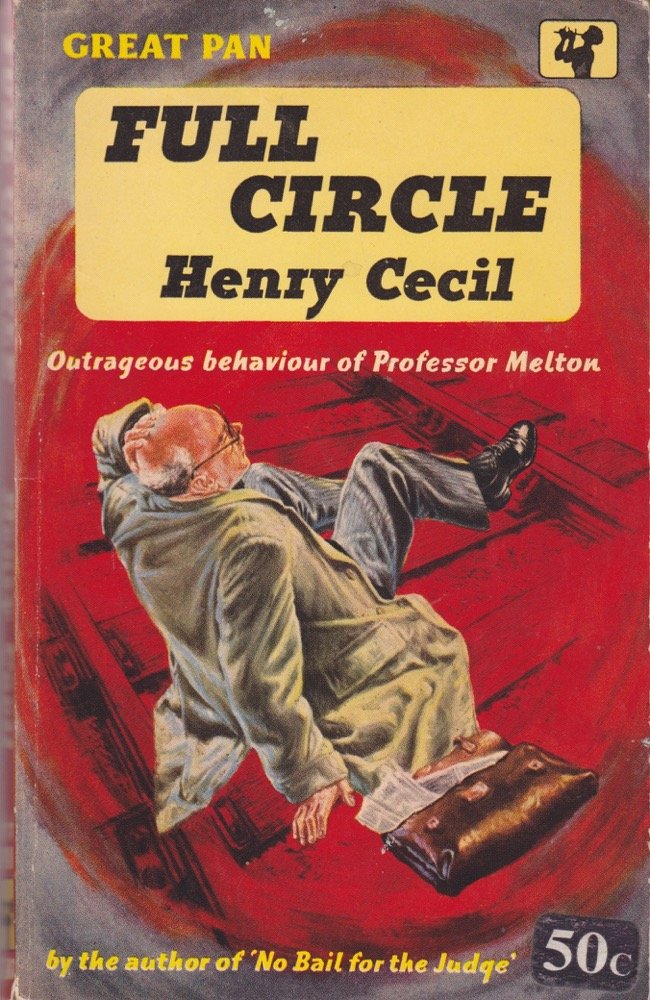A Henry Cecil novel always takes you through a hilarious, fun ride and Full Circle is no different. This book begins with a Professor of Law falling down at a railway station and hurting his head which brings out a strange change in him - he starts narrating stories that he never knew of. Full Circle is thus a compilation of short stories, independent of each other, all wrapped around by a larger story involving the Professor. While you would expect the book to contain many anecdotes from the world of law, since Henry Cecil himself worked in that field, that is surprisingly not so. There are tales that involve the police and lawyers and judges, and there are a few that have nothing to do with them. Each tale though has a twist right at the end, some predictable, most not. The best ones will make you slip out of your chair for they are nothing short of a M. Night Shyamalan movie (in his better days) in terms of suspense. Henry Cecil writes his stories with a simplicity and yet eloquence that could be a lesson taught to new writers. There is a smooth flow to his style of narration which make these short stories page-turners. There are some stories though where I would have liked the aspect of the law to be described more in detail since they formed the crux of the narrative. Nonetheless, the book is an enjoyable read on the whole!

